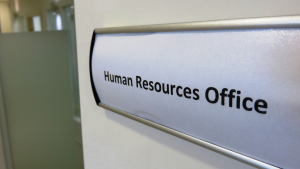So, you want to be a skilled interviewer?
Let’s be honest, most of us see it as a chore having to interview candidates. Was it part of my job description?
But if you want your company to be successful, recruiting the right people is critical for continuing growth and profitability. Candidates need to have both technical skills (even if job-specific training will be given), and behavioural or attitudinal fit with that of your organisation. So why is it so difficult to elicit these attributes?
Like most complex workplace processes, recruitment needs to be properly designed so that it is “fit for purpose”, and the supporting infrastructure needs to be put in place. The initial stages of the recruitment funnel need to ensure that there are enough high-quality candidates ready to be interviewed. “Best practice” is that the process is fair, objective, consistent, standardised and that the assessment criteria chosen are critical for success in the role
However, by far the most important factor in determining success, is that the relevant people involved have been sufficiently trained, and that they possess the skills to ensure that the right candidates are selected to receive offers. Human Resource managers may have been trained in how to interview candidates, but it is unlikely that business managers will have been.
So, what are the key skills required to be a successful interviewer? Obviously, familiarity with the recruitment process is a necessary pre-requisite, as is knowing how to complete any interview assessment forms, whether paper-based or online.
But what often counts more than these skills is the ability to properly navigate the interview process in the right direction. This is usually the skill to drive the conversation towards places where the interviewer can assess the skills of the interviewee and verify them before bringing them on board. Owing to its importance, businesses tend to hire agencies like Kayvan Consulting that provide interview training for hiring teams, potentially helping employees cultivate essential skills in finding the right talent.
Following on from the job description, and the list of essential and desirable skills and or competencies that are required, the interviewer needs to be able to gather high quality evidence as to whether the candidate does indeed have what is required. For each of the skills or competencies there should be a framework of “what good looks like”, and an objective scoring system as to how well the candidate demonstrates capability.
As a starting point for each competence, such as teamworking or communicating, the interviewer should prepare one or two open questions i.e., “tell me about a time when you were working in a team and one of the team profoundly disagreed with the others”. However instead of accepting everything said at face value, the skilled interviewer should be able to probe further, using questions such as how? when? why? and who? Of course, this should be done in a friendly but professional manner, rather than coming across as an interrogation, but too often there is little attempt to probe further into a candidate’s answer.
Skilled interviewers use a technique called active listening to further clarify candidates’ responses, rather than bland encouragement by saying “good” or “that’s great” after each answer. It requires focus and concentration by the interviewer, maintaining an appropriate level of eye contact, while being attuned to candidates’ feelings. Clarification should always be sought where there is ambiguity or lack of depth. Active listening involves the constant use of paraphrasing, and summarising what a candidate has said, often using phrases such as “Let’s make sure I’m hearing you properly” or “These are the key points I’ve heard you make”.
Active listening encourages the candidate to focus and should allow inconsistencies and lack of corroborative detail to be uncovered. This is a skill that can be learnt, either through role-playing and feedback, or by observing and critiquing interviews.
Of course, some candidates are more difficult to assess than others, requiring adjustments being made to the standardised questions. The skilled interviewer should be able to spot these different types, and to adjust their technique. For instance, some candidates are “Ramblers”, avoiding directly answering the question or going off track, usually with minimum eye contact. This may be due to poor communication skills rather than evasiveness, and they may respond well to repeating the question, or by probing.
Other candidates can be described as “minimalists”, giving short answers lacking in detail, and saying only yes or no to closed questions. They may respond well to further probing, or by the interviewer leaving long pauses, encouraging them to break the silence and then fill in more detail.
Then there is the nervous candidate, who may have closed or awkward body language and who speaks in a hesitant or anxious tone. They may well have excellent skills and be a good fit for the role, but the evidence needs coaxing out of them by the use of open body language, a warm tone and reassurance on the part of the interviewer.
Some candidates are overconfident, talking too much and too loudly, leaning forwards with overbearing eye contact and boasting of really impressive results without substance or supporting data. Further probing is called for; drill down on who did what and ask get details around the results. It may be revealing to establish who they reported to, and what were their manager’s responsibilities as opposed to their own.
With the appropriate training, involving roleplay and feedback, and through observing and critiquing hiring interviews, most managers should be able to improve their skill levels and be better able to select candidates who will be a good fit for the role in question.



